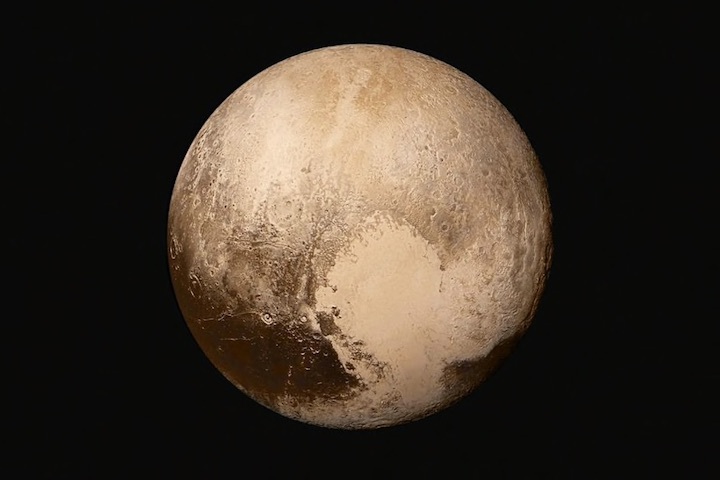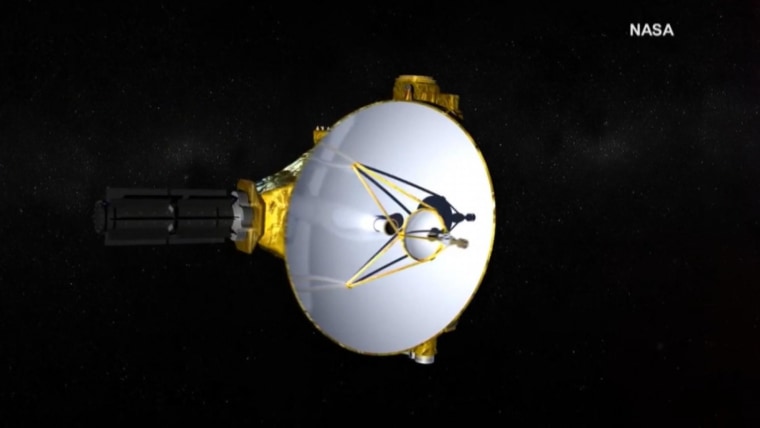1.01.2022
A group of researchers say Pluto was unfairly maligned by a decision to relegate it to "dwarf planet" status — and that we should consider our solar system to have more than 150 planets.

Scientists are making the case that Pluto is actually a planet. It lost its celestial status in 2006 when it was demoted to a dwarf planet.NASA/JHUAPL/SwRI
A team of scientists wants Pluto classified as a planet again — along with dozens of similar bodies in the solar system and any found around distant stars.
The call goes against a controversial resolution from 2006 by the International Astronomical Union that decided Pluto is only a “dwarf planet” — but the researchers say a rethink will put science back on the right path.
Pluto had been considered the ninth planet since its discovery in 1930, but the IAU — which names astronomical objects — decided in 2006 that a planet must be spherical, orbit the sun and have gravitationally “cleared” its orbit of other objects.
Pluto meets two of those requirements — it’s round and it orbits the sun. But because it shares its orbit with objects called “plutinos” it didn’t qualify under the new definition.
As a result, the IAU resolved the solar system only had eight major planets — Mercury, Venus, Earth, Mars, Jupiter, Saturn, Uranus and Neptune — and Pluto was relegated from the list.
But a study announced in December from a team of researchers in the journal Icarus now claims the IAU’s definition was based on astrology — a type of folklore, not science — and that it’s harming both scientific research and the popular understanding of the solar system.
The researchers say Pluto should instead be classified as a planet under a definition used by scientists since the 16th century: that “planets” are any geologically active bodies in space.
As well as Pluto, that definition includes many other objects — theasteroid Ceres, for example, and the moons Europa, Enceladus andTitan. But the researchers say the more the merrier.
“We think there’s probably over 150 planets in our solar system,” said Philip Metzger, the study’s lead author and a planetary physicist at the University of Central Florida.
The study comes amid research based on data from NASA’s New Horizons probe, which flew by Pluto in 2015.
The probe’s revelations have revived debate about Pluto’s status, planetary geologist Paul Byrne of North Carolina State University said.
“There was such interest from the New Horizons flyby,” said Byrne, who was not involved in the study. “But every time I gave a talk and I put up a picture of Pluto, the first question was not about the planet’s geology, but why was it demoted? That’s what stuck with people, and that’s a real shame.”
The researchers argue the IAU definition contradicted a definition of a planet that had stood for centuries.
Objects similar to Pluto, such as Eris and Makemake, had been found by 2006, and so the IAU engineered its definition to exclude them, Metzger said.
That led to the IAU — and therefore the public — adopting the “astrological” concept that Earth and the other planets were few and special, instead of a better classification that would have greatly increased the number of planets, he said.
The result is that most planetary scientists now disregard the IAU’s definition, he said.
“We are continuing to call Pluto a planet in our papers, we are continuing to call Titan and Triton and some other moons by the term ‘planet’,” he said. “Basically, we are ignoring the IAU.”
Quelle: NBC News

